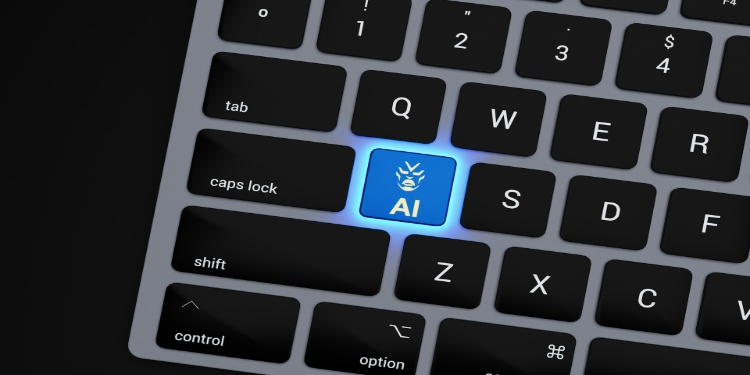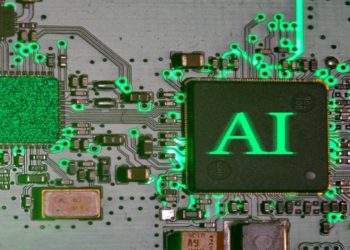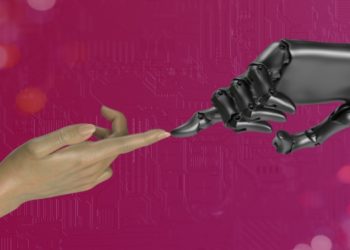From chatbots that write poetry to cars that drive themselves to scanning x-rays in real-time for fractures, AI has been making huge waves over the past couple of years. Despite mainstream opinions, the hype of artificial intelligence is not going anywhere.
Sure, the colorful predictions about the AI market and massive influx in AI investments are not as rife anymore. But what we are seeing now is a separation between dreamers and actual builders in the AI space. A clear line is being drawn where the true AI visionaries begin to develop strategies that actually create value.
How AI Actually Benefits Us
Most of us are familiar with AI tools like ChatGPT, which project the persona of an eager-to-please assistant, always ready to help. They’ll draft a document, explain some complicated concept, and even solve a tricky problem with just a tap of a button. But that’s not the whole story when it comes to artificial intelligence.
The name artificial intelligence was first thrown around in 1955 by some researchers. It was a term they used to explain a pretty wild idea where machines could learn to understand human language, come up with their own ideas, and tackle actual problems.
Fast forward to today, and we’ve got systems running on machine learning techniques. These are basically fancy algorithms that gobble up vast amounts of data, spot patterns, and come up with predictions at speeds and accuracy that were previously thought unimaginable.
The ace in the hole for AI, though, isn’t just how fast it can crank stuff out or automate tasks. It’s how it actually stretches our potential as humans, helping us make better choices, stumble upon new insights, and come up with unique innovations. Below are a few ways AI is actually providing real value to our daily lives, often without us even realizing it.
- The Rise of Natural Language Processing (NLP) Models
From Alexa to Siri to sophisticated customer service chatbots, these assistants have become an integral part of how we communicate with technology. It’s the reason why your phone can transcribe speech, predict email responses, and virtual assistants can follow complex concepts.
With a global NLP market valued at $42.47 billion in 2025 and expected to reach $791.16 billion by 2034, it’s clear our reliance on language-based AI will continue to reshape how we communicate, learn, and solve everyday problems.
- A New Era in Visual Interpretation
Computer vision technology is a type of AI that machines use to see, analyze, and interpret visual data just like a human would, but much faster and with more accuracy. It’s the magic behind facial recognition systems, autonomous vehicles, and diagnosing medical conditions.
Although it could be overhyped, a future where machines evaluate medical scans and identify anomalies instantly is not as far-fetched as you would like to think.
- Redefining the Meaning of Personalized Content
Whether it’s recommending your favorite Netflix shows or even generating art, AI has mastered the art of magically knowing what we like. It’s like having your very own pit boss who always knows what you’re in the mood for. Platforms like Netflix, Spotify, and even casino sites monitor your clicks and online habits to tailor your recommendations better.
The online gaming and gambling industry has been particularly aggressive in adopting AI personalization technologies. Modern casino platforms employ machine learning algorithms that track player preferences, gaming habits, and spending patterns to create customized experiences. For instance, when players visit low deposit casinos, the AI systems analyze their previous game choices, betting patterns, and session duration to recommend specific slot games, table games, or live dealer experiences they’re most likely to enjoy. These platforms also use AI to personalize promotional offers, adjusting bonus structures and free spin allocations based on individual player profiles and deposit behaviors.
- AI in Addressing Climate Change
One thing AI does exceptionally well is analyzing vast amounts of data and providing easy-to-understand actionable insights. This is one of those things that come in handy when addressing challenges in climate science.
Apart from predicting climate trends, AI plays a crucial role in offering insights on how to optimize renewable energy sources, mitigating the effects of climate change, and monitoring real-time deforestation, among others.
In the coming years, we expect to see more use of AI in climate science, as we turn data into actionable strategies for reducing carbon emissions, protecting natural resources, combat climate change, and plenty more.
- Reshaping Workflows and Increasing Efficiency
Particularly in agriculture and manufacturing sectors, AI-powered robots are now responsible for everyday repetitive tasks, freeing humans to focus on more complex and creative work. Think assembling products with speed and precision, monitoring soil conditions, and even automating planting, tending, and harvesting processes–all with maximum output and little to no mistakes.
What once felt like a futuristic concept where AI-powered robotics worked tirelessly assembling products in factories with perfect accuracy is now an everyday reality, one that boosts productivity, efficiency, and innovation across industries.
Where Do We Go from Here?
Now that the phase of getting unreasonable hype from AI firms is over, we expect to see more practical, results-driven era of how AI can actually solve real-world problems. As businesses continue to experiment with these tools, they are prioritizing responsible integration, transparency, and long-term value rather than flashy promises and quick adoption. AI’s next chapter is not about replacing human intelligence, but working alongside it to create smarter strategies and amplify human creativity.
David Prior
David Prior is the editor of Today News, responsible for the overall editorial strategy. He is an NCTJ-qualified journalist with over 20 years’ experience, and is also editor of the award-winning hyperlocal news title Altrincham Today. His LinkedIn profile is here.













































































